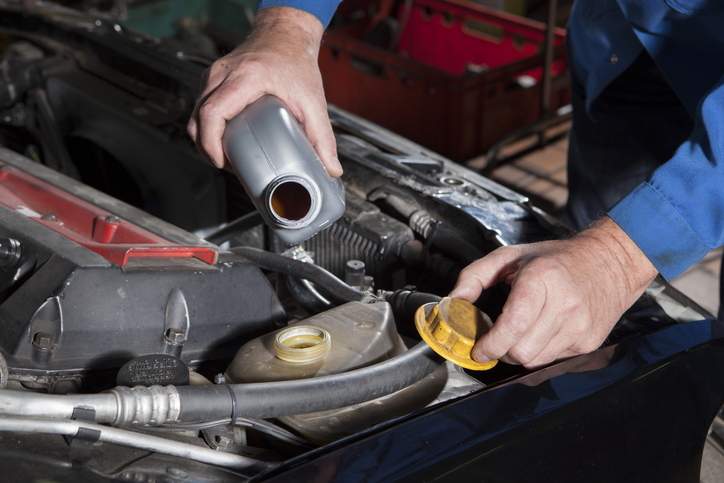Vehicle Fluids 101
Posted November 2, 2021

While they might not be the first thing that come to mind when you think about vehicle maintenance, your car’s fluids are literally its lifeblood and they are a vital component of its health.
A vehicle’s fluids are responsible for performing various functions that keep your engine running at an optimal level. Your car’s fluid levels should be monitored closely and, in some cases, you should have flushes performed in order to keep your vehicle safely on the road between tune-ups.
– Motor Oil is responsible for lubricating all of your engine’s moving parts and will need to be replaced every three months or 3,000 miles. If you don’t change your oil regularly it will thicken and your engine will not be able to function properly.
– Brake Fluid amplifies the force with which your vehicle stops, transferring force into pressure in your hydraulic braking system. In general, brake fluid should typically be flushed every year or two.
– Coolant/Antifreeze maintains your vehicle’s engine at an ideal temperature. Via a process known as convection, engine coolant transfers heat and prevents overheating or freezing from occurring in your vehicle. These fluids tend to vary in terms of composition, so it’s best to check with your preferred brand’s manufacturer for a changeout timetable.
– Transmission Fluid performs the task of making sure that your transmission is properly lubricated, which is critical to your car’s health. Like engine coolant, there are several different types of transmission fluid so its flushing schedule will be dependent upon the manufacturer.
Other fluids that can be found in your car include washer fluid, power steering fluid and refrigerant, all of which will need to be changed out regularly as part of a well-designed preventative maintenance schedule. If you have any questions regarding your vehicle’s fluids are you need to schedule an appointment for a flush, give us a call at 651-426-0462 or swing by our shop in White Bear Lake.
